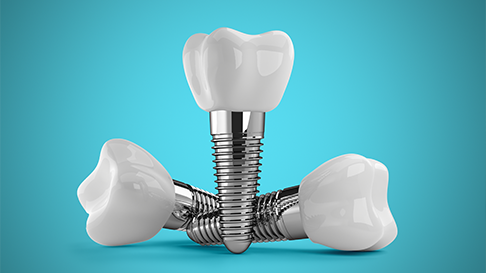Dental implants are a popular and effective solution for replacing missing teeth, providing a permanent and natural-looking result. Whether you’re missing a single tooth or multiple teeth, understanding your treatment options is essential for a successful outcome. Here’s a guide to help you navigate the process, from the initial consultation to post-treatment care.
What to Ask Before Getting Dental Implants
Choosing dental implants is a significant decision that can dramatically improve your quality of life by restoring function and aesthetics to your smile. However, like any major medical procedure, it’s essential to be well-informed before proceeding. Here’s a deeper dive into the critical questions you should ask before committing to dental implant treatment:
Am I a Good Candidate for Dental Implants?
Not everyone is an ideal candidate for dental implants, so understanding your eligibility is the first step. Dental implants require a solid foundation of healthy bone and gums. Here are some factors your dentist will evaluate:
- Bone Density: A sufficient amount of healthy jawbone is necessary to anchor the implant securely. If you've experienced bone loss due to tooth extraction or gum disease, you might need a bone graft before the implant can be placed.
- Gum Health: Healthy gums are crucial as they support the implant and the healing process. Periodontal disease can compromise the success of implants, so treating any gum issues beforehand is essential.
- Overall Health: Your general health can affect both the surgery and recovery. Chronic conditions like diabetes or immune system disorders, as well as lifestyle factors like smoking, can impact healing and the long-term success of the implant. A thorough medical history review will help your dentist determine if you’re a good candidate.
What Type of Implants Will Work Best for Me?
Dental implants are not a one-size-fits-all solution. Several types of implants are available, each suited to different needs:
- Traditional Implants: These are the most common type and involve placing a single titanium post in the jawbone, which is later topped with a crown. This method is ideal for replacing one or more teeth and offers a highly stable and long-lasting solution.
- Mini Implants: These are smaller in diameter than traditional implants and are often used when there is less bone available. They can be placed in a less invasive procedure, often without the need for bone grafting.
- All-on-4 Implants: This technique is designed for patients who need to replace an entire arch of teeth. It involves placing four strategically angled implants in the jaw to support a full set of dentures. This method offers a quicker turnaround and requires fewer implants, making it a cost-effective option.
Understanding which type of implant suits your situation can help tailor the treatment to your specific needs and expectations.
What is the Expected Timeline for Treatment?
The timeline for dental implant treatment can vary significantly based on individual circumstances and the complexity of the case. Here's a general overview:
- Initial Evaluation and Planning: This phase includes consultations, imaging (like X-rays or CT scans), and treatment planning. It might take a few weeks to a month depending on scheduling.
- Bone Grafting (if needed): If you require bone grafting, this step will add additional time to your treatment, typically a few months, as the graft needs to integrate with your natural bone before the implant can be placed.
- Implant Placement: The surgical placement of the implant usually takes about an hour per implant. Post-surgery, a healing period of three to six months is necessary for osseointegration—the process where the bone grows around the implant to secure it in place.
- Abutment and Crown Placement: Once the implant is secure, an abutment is attached, followed by the custom-made crown. This phase can take a few more weeks as it involves additional healing and ensuring the crown fits perfectly.
By understanding the timeline, you can manage your expectations and plan your life around the treatment, ensuring you’re prepared for each phase.
What is the Cost, and Does Insurance Cover It?
Dental implants can be a significant financial investment, but the cost can vary widely based on several factors:
- Number of Implants Needed: The more implants you require, the higher the cost. Single implants can range from $3,000 to $6,000 per tooth, including the implant, abutment, and crown.
- Additional Procedures: Costs increase if you need preparatory procedures such as bone grafts or sinus lifts.
- Type of Implant and Material: The choice of implant and the materials used in the crown (such as porcelain or zirconia) can also affect the price.
- Geographical Location: Prices can vary based on where you live and the dental office’s location.
Insurance coverage for dental implants varies. While some insurance plans cover part of the procedure, many consider implants a cosmetic treatment and may not offer coverage. It’s crucial to discuss the full cost breakdown with your dentist and check with your insurance provider about potential benefits or financing options.
What is the Success Rate of Dental Implants?
Dental implants boast a high success rate, generally around 95% to 98%, but it’s still important to discuss potential risks with your dentist. Factors that can influence the success of your implant include:
- Oral Hygiene: Maintaining excellent oral hygiene is critical to the long-term success of your implant. Neglecting oral care can lead to infections or implant failure.
- Lifestyle Choices: Habits like smoking can impede healing and increase the risk of complications. Quitting smoking before and after the procedure can significantly enhance the chances of success.
- Experience of the Dental Surgeon: The success of your implant also heavily depends on the skill and experience of the dentist performing the procedure. Ensure you choose a dentist with a proven track record in implant dentistry.
By discussing these factors and asking about your dentist’s success rate with similar cases, you can gain confidence in the procedure and your expected outcome.
Are You Put to Sleep for Dental Implants?
A common concern among patients is whether they’ll be awake during the implant procedure. The answer varies based on the complexity of the surgery and your comfort level.
Local Anesthesia: For most implant procedures, local anesthesia is sufficient. It numbs the area, so you won't feel pain but will remain awake and aware.
Sedation Options: If you’re anxious or the procedure is more complex, sedation dentistry is an option. This can range from mild sedation (you’re awake but relaxed) to deep sedation or general anesthesia, where you’ll be completely asleep.
Discuss your comfort level with your dentist, and they can recommend the best sedation method for you.
How Many Visits Are Involved with Implant Treatment?
The number of visits required for dental implants can vary based on the individual case, but typically, here’s what you can expect:
Initial Consultation: Your first visit involves an evaluation, including X-rays and possibly a CT scan, to assess the condition of your jawbone and plan the implant placement.
Implant Placement Surgery: During this visit, the dentist surgically places the implant into your jawbone. This is followed by a healing period, which can last several months as the implant integrates with the bone.
Abutment Placement: After the implant has fused with your bone, a second visit is needed to attach the abutment, which connects the implant to the final crown.
Final Crown Placement: Once your gums have healed, and the abutment is securely in place, the final crown (the visible part of the tooth) is attached. This step may require one or two visits to ensure the perfect fit.
Follow-Up Visits: Regular check-ups are necessary to monitor the implant and your oral health, ensuring the longevity of the implant.
Conclusion
Dental implants offer a reliable and lasting solution for missing teeth, but the process involves careful planning and multiple steps. By asking the right questions and understanding the treatment process, you can ensure a successful and smooth experience.
Ready to restore your smile with dental implants? Schedule an appointment with us today to start your journey towards a confident, healthy smile. Our experienced team is here to guide you through every step of the process, ensuring the best possible outcome for your dental health.










